When I was around twelve years old I began reading (more like devouring) the paperback novels that my mom left around the house. One of those books was Coma by Robin Cook, the first adult thriller that I’d read. It was a terrifying story, made more so by the fact that it was set in Boston. I grew up in Massachusetts but we often visited Boston for Red Sox games, or to eat in the North End. Something about the familiarity of Coma’s setting made it more real for me, and all the scarier.
New England, with its long winters, dark woods and rocky shoreline, is a great setting for mystery novels and thrillers. I’m biased, of course, because I’ve written four thrillers set in various locations in New England, but there’s something inherently moody about the place. The weather is unpredictable, often inhospitable. In winter we are plagued by Nor’easters, blizzards that spin off the Atlantic ocean and trap people in their houses for days. In the summer we get long stretches of beautiful days, and people head toward water, either along the ocean, or on the shores of the many deep lakes in northern New England.
And it’s not just the shorelines and woods that provide decent settings for murderous tales. New England’s cities are made from granite and brick, and they are filled with narrow alleys, and reticent citizens. The following are my favorite thrillers set in the towns and country of New England.
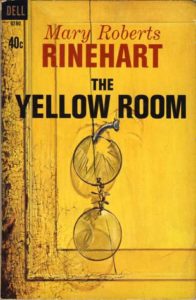
Mary Roberts Rinehart, The Yellow Room (1945)
Carol Spencer heads up to the coast of Maine to open the family home for the summer, and encounters a burned corpse in a closet. Mary Roberts Rinehart (mostly forgotten now) was once known as the American Agatha Christie, and this is one of her better mysteries. It captures both the Maine location, but also the feel of America on the homefront during the second world war.

Ira Levin, The Stepford Wives (1972)
This ludicrous but highly entertaining thriller takes place in the fictional (thank God) town of Stepford, Connecticut, where the majority of wives, despite the then-burgeoning women’s rights movement, are submissive and adoring. Joanna Eberhart, newly relocated to Stepford with her husband, is alarmed, and begins to investigate. Ira Levin’s book is both sharply satirical, and genuinely unnerving.

George V. Higgins, The Friends of Eddie Coyle (1972)
A brilliant profile of down-and-out crook Eddie Coyle and his life in the very down-and-out Boston of the early 1970s. Almost all dialogue, this is one of the great, gritty thrillers, and a snapshot of a different era in Boston’s history.
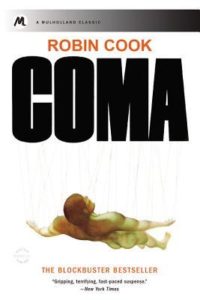
Robin Cook, Coma (1973)
Certainly the best medical thriller I’ve ever read, it still holds up in its pure creepiness. Boston, with its overabundance of teaching hospitals, and its gray color palette, is the perfect location to frame this story of illegal organ harvesting.

Peter Benchley, Jaws (1974)
The town of Amity, the imagined summer vacation island off the coast of Massachusetts, comes to vivid life in this novel, and not just because an enormous great white shark is stalking its shore. The book is different—grittier and less likable—than the movie, but it still packs of visceral punch. Read it at the beach.
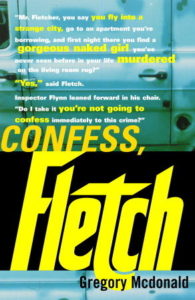
Gregory McDonald, Confess, Fletch (1976)
The best of the Fletch novels is set in foggy Boston and its environs, and introduces the amusing character of Inspector Flynn, who went on to star in his own series of Boston-based novels. Confess, Fletch is both a very clever whodunit, but also an art heist caper, and yet it retains all the humor and readability of McDonald’s somewhat forgotten book series.
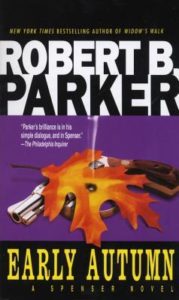
Robert B. Parker, Early Autumn (1980)
All of the early Spenser novels are excellent, but this one is a standout. Private Investigator Spenser is hired to protect a pre-teen boy and his mother from the disgruntled father. Disgusted by both parents, Spenser essentially kidnaps the boy himself, brings him to the Maine woods to try and rebuild his self-esteem. It works as both a thriller, and a touching tale of a broken boy.

Donna Tartt, The Secret History (1992)
A wintry New England novel that begins with a student’s murder on the idyllic Vermont campus of the fictional Hampden College. What works particularly well is that the narrator, Richard, hails from working class California, and brings an outsider’s eye to New England. The New England of Tartt’s novel is a brew of elitism, aestheticism, coldness, and murder.
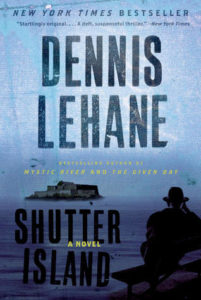
Dennis Lehane, Shutter Island (2003)
Set on a fictional island in Boston Harbor in the 1950s, this is pure gothic creepiness. During an investigation at an island hospital for the criminally insane, the chief investigator begins to question his own sanity. Lehane’s other Boston-set masterpiece, Mystic River, could easily be on this list as well.

William Landay, Defending Jacob (2012)
Set in the affluent Boston suburb of Newton, Massachusetts, Landay’s book portrays what happens when an assistant district attorney’s son is accused of a vicious murder. This effective courtroom drama does a great detailing the effect that a brutal crime can have on both a family and a town. It also has a very wicked sting in its tale.

















